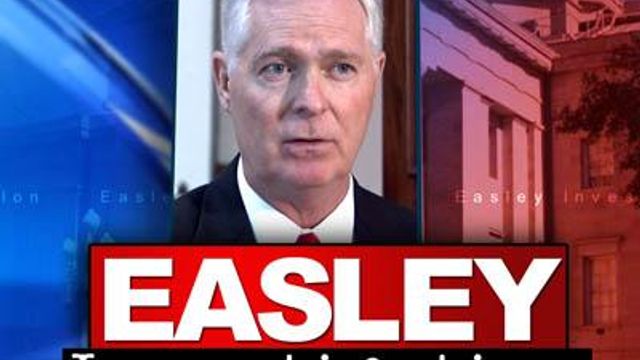Easley latest N.C. politician to face elections inquiry
The State Board of Elections will once again be in the spotlight next week as it conducts a hearing into the campaign finances of former Gov. Mike Easley.
Posted — UpdatedQuestions surround amended finance reports Easley's campaign filed in April after previously failing to disclose the use of an SUV provided by a Red Springs car dealer. The campaign is also under scrutiny over unreported flights on private planes, which could have violated donation limits.
State law prohibits political contributions from corporations and limits individual donations to $4,000 per candidate in any election cycle.
Easley will be the first former governor to go before the elections board, but he's only the latest high-profile politician to face such an inquiry.
The first major hearing was in 2002, when state Agriculture Commissioner Meg Scott Phipps faced allegations that she used campaign funds inappropriately.
The daughter of the late Gov. Bob Scott was elected in 2000. She eventually was convicted of perjury in state court and then pleaded guilty to federal fraud and conspiracy charges. She served a four-year sentence at the prison camp in Alderson, W.Va., and was released in April 2007.
House Speaker Jim Black, who led the state House of Representatives for eight years, was brought before the elections board in 2006 to answer questions about donations from video poker interests, chiropractors, optometrists and others.
Former Rep. Michael Decker testified that he switched political parties in 2003 after a cash payment from Black. The move helped Black hold onto a share of the speaker position in an evenly divided House.
Black consistently denied the allegations, none of which were ever proven in court.
Still, he pleaded guilty the following year to federal corruption charges linked to unreported campaign contributions from chiropractors and state charges of bribery for the payment to Decker and obstruction of justice. He is serving a 63-month sentence at a federal prison in Jesup, Ga.
Shortly after Black's pleas, a former ally, Wilmington Rep. Thomas Wright, was called before the elections board amid allegations that he hid campaign donations and used contributions for personal expenses.
Wright was expelled from the House last year and was convicted of fraud and obstruction of justice. He is serving 70 to 95 months in prison.
In Easley's case, the elections board could take no action or issue a fine or reprimand. The board's findings could also be turned over to the Wake County District Attorney's Office for possible criminal prosecution.
Copyright 2024 by Capitol Broadcasting Company. All rights reserved. This material may not be published, broadcast, rewritten or redistributed.






